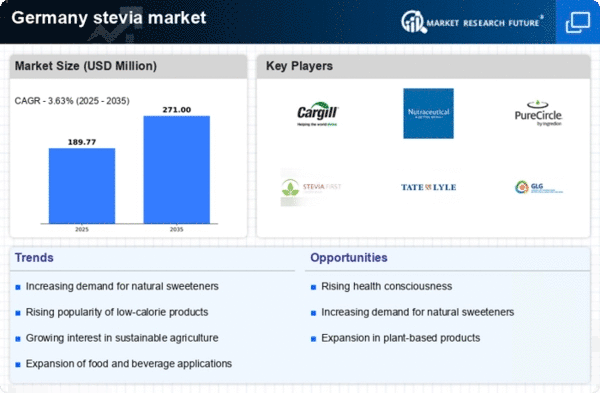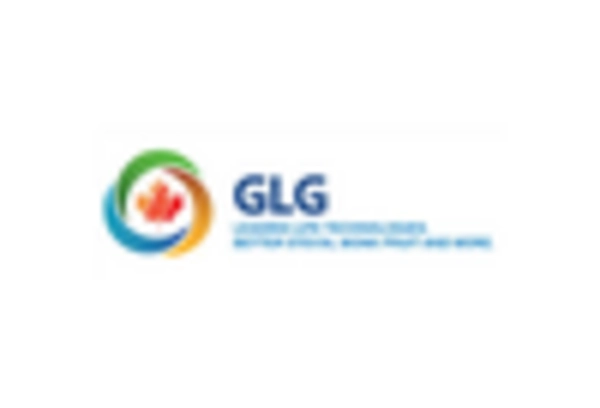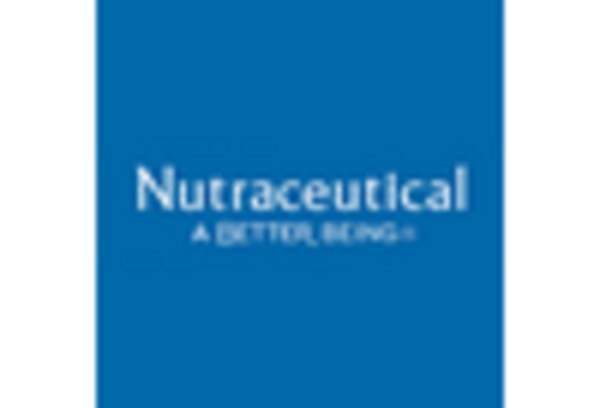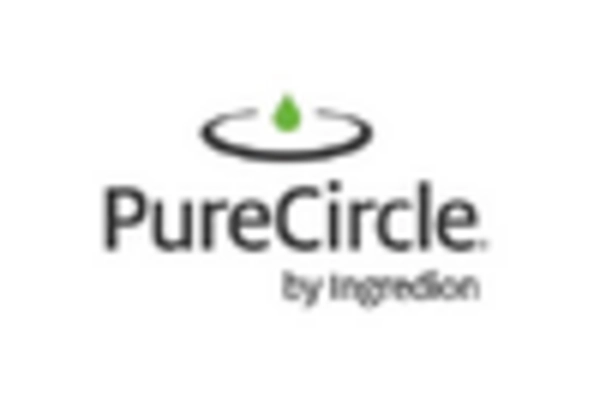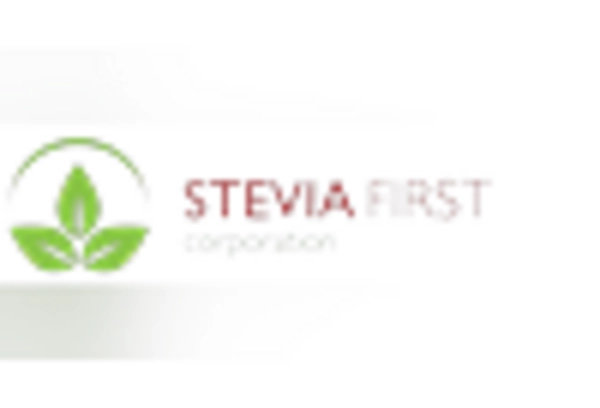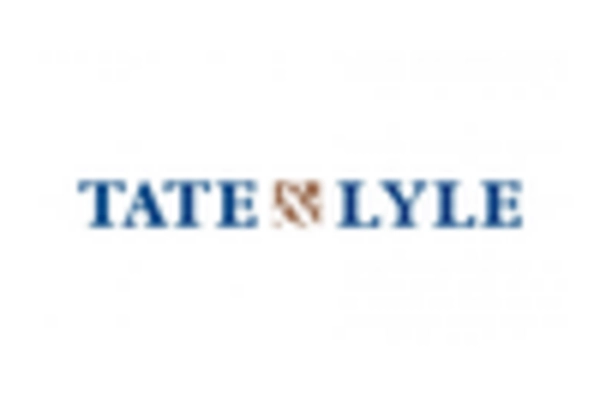Rising Incidence of Lifestyle Diseases
The prevalence of lifestyle-related diseases such as obesity and diabetes in Germany is driving the growth of the stevia market. With an estimated 10% of the population affected by diabetes, there is a heightened awareness of the need for low-calorie sweeteners. Stevia, being a zero-calorie natural sweetener, presents a viable solution for consumers looking to manage their sugar intake. The stevia market is responding to this demand by expanding product offerings that cater to health-conscious individuals. This trend is expected to bolster the market further, as more consumers seek healthier alternatives to traditional sweeteners.
Increasing Demand for Natural Sweeteners
The growing preference for natural sweeteners among consumers in Germany is a pivotal driver for the stevia market. As health awareness rises, individuals are increasingly seeking alternatives to artificial sweeteners and sugar. This shift is reflected in market data, indicating that the demand for stevia-based products has surged by approximately 25% over the past year. The stevia market is witnessing a transformation as consumers prioritize clean labels and natural ingredients, leading to a broader acceptance of stevia in various food and beverage applications. This trend is likely to continue, as more manufacturers are incorporating stevia into their product lines to cater to health-conscious consumers.
Growing Awareness of Clean Label Products
The clean label movement is gaining traction in Germany, with consumers demanding transparency in food labeling. This trend is significantly impacting the stevia market, as stevia is often perceived as a healthier, more natural alternative to traditional sweeteners. The stevia market is responding to this demand by emphasizing the natural origins of stevia and its absence of artificial additives. As consumers become more discerning about the ingredients in their food, the appeal of stevia is likely to increase, driving further growth in the market. This shift towards clean label products may also encourage more brands to adopt stevia in their formulations.
Sustainability and Environmental Concerns
Sustainability is becoming increasingly important to consumers in Germany, influencing their purchasing decisions. The stevia market is benefiting from this trend, as stevia is known for its low environmental impact compared to sugar production. The cultivation of stevia requires significantly less water and land, making it an attractive option for environmentally conscious consumers. As the stevia market continues to promote its sustainability credentials, it is likely to attract a broader customer base. This focus on sustainability may also encourage more companies to invest in stevia production, further enhancing its market presence.
Expansion of Food and Beverage Applications
The versatility of stevia as a sweetener is driving its adoption across various food and beverage segments in Germany. From soft drinks to baked goods, manufacturers are increasingly incorporating stevia into their formulations. This trend is supported by market data indicating that the beverage segment alone accounts for over 40% of the stevia market. As consumer preferences evolve, the stevia market is likely to see continued innovation in product development, with new applications emerging. This expansion into diverse categories is expected to sustain growth and attract new consumers seeking healthier options.


